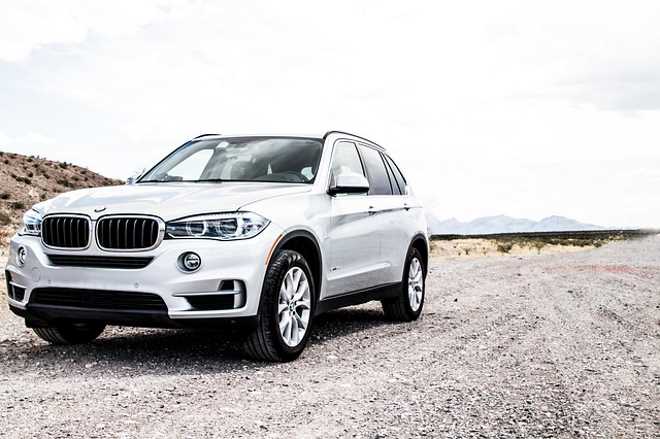Used Toyota 4Runner: Prices and Why Drivers Still Swear by Them
Used Toyota 4Runner prices remain some of the most stable in the SUV market. Drivers keep praising these SUVs for their reliability, off-road strength, and long lifespan. This article explores price trends, ownership insights, and what makes 4Runners hold their value so well.

The Toyota 4Runner stands apart in a market increasingly dominated by crossovers and car-based SUVs. Its traditional truck-based construction, proven off-road capability, and reputation for lasting well beyond 200,000 miles have made it a favorite among outdoor enthusiasts, families, and anyone seeking a dependable vehicle. Even as newer models enter the market, used 4Runners remain highly sought after, often commanding prices that reflect their enduring value.
What Are Current Used Toyota 4Runner Prices?
Pricing for used Toyota 4Runners varies significantly based on model year, mileage, trim level, and condition. Generally, buyers can expect to pay between $15,000 and $45,000 depending on these factors. Older models from the early 2010s with higher mileage typically fall in the $15,000 to $25,000 range, while more recent models from 2018 onward with lower mileage can exceed $35,000. Limited and TRD Pro trims command premium prices due to their enhanced features and off-road equipment. Regional demand also influences pricing, with higher prices common in areas where outdoor recreation is popular. The strong resale value means depreciation is slower compared to many competitors, making the 4Runner a solid investment for those planning to keep their vehicle long-term.
Prices, rates, or cost estimates mentioned in this article are based on the latest available information but may change over time. Independent research is advised before making financial decisions.
Why Is 4Runner Reliability and Maintenance Cost a Major Draw?
Reliability remains the cornerstone of the 4Runner’s appeal. Toyota’s engineering emphasizes durability over cutting-edge technology, resulting in fewer complex systems that can fail. The 4.0-liter V6 engine used in many model years has proven exceptionally reliable, with many owners reporting minimal issues even at high mileage. Maintenance costs are generally reasonable for a vehicle of this size and capability. Routine services like oil changes, brake pad replacements, and tire rotations align with industry standards. However, fuel economy is not a strong point, with most models averaging 16-19 miles per gallon in combined driving. Potential buyers should budget for higher fuel costs compared to more efficient crossovers. Major repairs, when needed, tend to be straightforward due to the vehicle’s simpler mechanical design, and parts availability is excellent. Many owners report that with proper maintenance, the 4Runner requires fewer unexpected repairs than competing models.
How Does SUV Resale Value Impact Long-Term Ownership?
The 4Runner consistently ranks among the top vehicles for resale value retention. This characteristic benefits both sellers and buyers in the used market. For sellers, it means recouping a larger percentage of the original purchase price. For buyers, it provides confidence that their investment will hold value over time. Several factors contribute to this strong resale performance. The vehicle’s reputation for reliability creates sustained demand, even for higher-mileage examples. Its capability and versatility appeal to a broad audience, from families to adventure seekers. Additionally, the relatively slow pace of design changes means older models do not appear drastically outdated. This resale strength also makes the 4Runner an attractive option for those who prefer to buy used and sell before major repairs become necessary. In markets where outdoor activities are prevalent, demand remains particularly robust, sometimes resulting in used prices that approach or even match newer model pricing in other regions.
Are There Best Used Toyota SUVs for Longevity Beyond the 4Runner?
While the 4Runner leads in rugged durability, Toyota offers other SUVs known for longevity. The Toyota Highlander, a crossover SUV, provides excellent reliability with better fuel economy and a more refined ride suitable for families prioritizing comfort. The Toyota Sequoia, larger and more powerful, appeals to those needing maximum towing capacity and passenger space while maintaining Toyota’s reliability standards. The RAV4, though smaller, offers proven dependability and lower ownership costs, making it ideal for urban drivers. Each model serves different needs, but all share Toyota’s commitment to build quality and long-term durability. For buyers focused specifically on off-road capability and traditional SUV construction, the 4Runner remains unmatched within Toyota’s lineup. However, those willing to sacrifice some ruggedness for efficiency or space may find other Toyota SUVs better suited to their lifestyle while still enjoying excellent longevity.
What Are Current Off-Road SUV Market Trends?
The off-road SUV segment has experienced renewed interest in recent years as more drivers seek vehicles capable of handling diverse terrain and weather conditions. This trend has elevated demand for models like the 4Runner, Jeep Wrangler, and newer entries like the Ford Bronco. Manufacturers are responding with enhanced off-road packages, improved technology integration, and modern safety features while maintaining core capability. However, the shift toward electrification is beginning to influence this segment, with electric and hybrid off-road vehicles entering development. For now, traditional body-on-frame SUVs remain dominant among serious off-road enthusiasts who value proven mechanical simplicity and repairability in remote locations. The used market reflects this enthusiasm, with well-maintained off-road-capable SUVs holding value exceptionally well. Buyers entering this market should expect competition for desirable examples and be prepared to act quickly when suitable vehicles become available.
| Vehicle Model | Typical Price Range | Key Longevity Features |
|---|---|---|
| 2010-2014 Toyota 4Runner | $15,000 - $25,000 | Body-on-frame construction, proven V6 engine |
| 2015-2018 Toyota 4Runner | $25,000 - $35,000 | Updated safety features, enhanced reliability |
| 2019-2022 Toyota 4Runner | $35,000 - $45,000 | Modern tech, low depreciation, excellent condition |
| Toyota Highlander (2012-2018) | $18,000 - $30,000 | Crossover efficiency, family-friendly design |
| Jeep Wrangler (2015-2020) | $25,000 - $40,000 | Removable tops, strong off-road heritage |
Prices, rates, or cost estimates mentioned in this article are based on the latest available information but may change over time. Independent research is advised before making financial decisions.
The Toyota 4Runner continues to earn loyalty through a combination of proven reliability, strong resale value, and genuine capability. For drivers seeking a vehicle that can handle both daily responsibilities and weekend adventures without frequent trips to the repair shop, the 4Runner represents a compelling choice in the used SUV market. While fuel economy and ride comfort may not match modern crossovers, the trade-offs are acceptable for those who prioritize durability and versatility. Prospective buyers should research specific model years, inspect maintenance records carefully, and consider their actual needs to ensure the 4Runner aligns with their lifestyle and budget.




